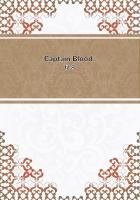So we remained over Sunday in Quebec, and in the morning attended service at the French Cathedral; and as we all had the American accomplishments of the "Nonne, a Prioresse," who spoke French "ful fayre and fetisly After the scole of Stratford atte Bowe, The Frenche of Paris was to hire unknowe,"it may be inferred that we were greatly edified by the service.
From the French, as one cannot have too much of a good thing, we proceeded without pause to the English Cathedral,--cathedral by courtesy?--and heard a sermon by a Connecticut bishop, which, however good, was a disappointment, because we wanted the flavor of the soil. And after dinner we walked on the high and sightly Durham terrace, and then went to the Scotch church, joined in Scotch singing, and heard a broad Scotch sermon. So we tried to worship as well as we could; but it is impossible not to be sight-seeing where there are sights to see, and for that matter I don't suppose there is any harm in it. You don't go to a show; but if the church and the people and the minister are all a show, what can you do about it?
As I sat listening in the French Cathedral to a service I but a quarter comprehended, the residual three fourths of me went wandering at its own sweet will, and queried why it is that a battle-ground should so stir the blood, while a church suffers one to pass calmly and coldly out through its portals. I do not believe it is total depravity; for though the church stands for what is good, the battle-field does not stand for all that is bad. The church does indeed represent man's highest aspirations, his longings for holiness and heaven. But the battle-field speaks not, I think, of retrogression. It is in the same line as the church. It stands in the upward path.
The church and its influences are the dew and sunshine and spring rains that nourish a gentle, wholesome growth. Battle is the mighty convulsion that marks a geologic era. The fierce throes of battle upheave a continent. The church clothes it with soft alluvium, adorns it with velvet verdure, enriches it with fruits and grains, glorifies it with the beauty of blooms.
In the struggle all seems to be chaos and destruction; but after each shock the elevation is greater. Perhaps it is that always the concussion of the shock impresses, while the soft, slow, silent constancy accustoms us and is unheeded; but Ithink there is another cause. In any church you are not sure of sincerity, of earnestness. Church building and church organization are the outgrowth of man's wants, and mark his upward path; but you do not know of a certainty whether this individual edifice represents life, or vanity, ostentation, custom, thrift. You look around upon the worshippers in a church, and you are not usually thrilled. You do not see the presence and prevalence of an absorbing, exclusive idea.
Devotion does not fix them. They are diffusive, observant, often apparently indifferent, sometimes positively EXHIBITIVE.
They adjust their draperies, whisper to their neighbors, took vacant about the mouth. The beat of a drum or the bleat of a calf outside disturbs and distracts them. An untimely comer dissipates their attention. They are floating, loose, incoherent, at the mercy of trifles. The most inward, vital part of religion does not often show itself in church, though it be nursed and nurtured there. So when we go into an empty church, it is--empty. Hopes, fears, purposes, ambitions, the eager hours of men, do not pervade and penetrate those courts.
The walls do not flame with the fire of burning hearts. The white intensity of life may never have glowed within them. No fragrance of intimate, elemental passion lingers still. No fine aroma of being clings through the years and suffuses you with its impalpable sweetness, its subtile strength. You are not awed, because the Awful is not there. But on the battle-field you have no doubt. Imagination roams at will, but in the domains of faith. Realities have been there, and their ghosts walk up and down forever. There men met men in deadly earnest.
Right or wrong, they stood face to face with the unseen, the inevitable. The great problem awaited them, and they bent fiery souls to its solution. But one idea moved them all and wholly. They threw themselves body and soul into the raging furnace. All minor distractions were burned out. Every self was fused and lost in one single molten flood, dashing madly against its barrier to whelm in rapturous victory or be broken in sore defeat.
And it is earnestness that utilizes the good. It is sincerity that makes the bad not infernal.
Monday gave us the Indian village, more Indian-y than village-y,--and the Falls of Lorette. For a description, see the Falls of Montmorency. Lorette is more beautiful, I think, more wild, more varied, more sympathetic,--not so precipitous, not so concentrated, not so forceful, but more picturesque, poetic, sylvan, lovely. The descent is long, broad, and broken. The waters flash and foam over the black rocks like a white lace veil over an Ethiop belle, and then rush on to other woodland scenes.
We left Quebec ignobly, crossing the river in a steamer to which the eminently English adjective nasty can fitly apply,--a wheezy, sputtering, black, crazy old craft, muddy enough throughout to have been at the bottom of the river and sucked up again half a dozen times. With care of the luggage, shawls, hackmen, and tickets, we all contrived to become separated, and I found myself crushed into one corner of a little Black Hole of Calcutta, with no chair to sit in, no space to stand in, and no air to breathe, on the sultriest day that Canada had known for years. What windows there were opened by swinging inwards and upwards, which they could not do for the press, and after you had got them up, there was no way to keep them there except to stand and hold them at arm's length. So we waddled across the river. Now we have all read of shipwrecks, and the moral grandeur of resignation and calmness which they have developed.















